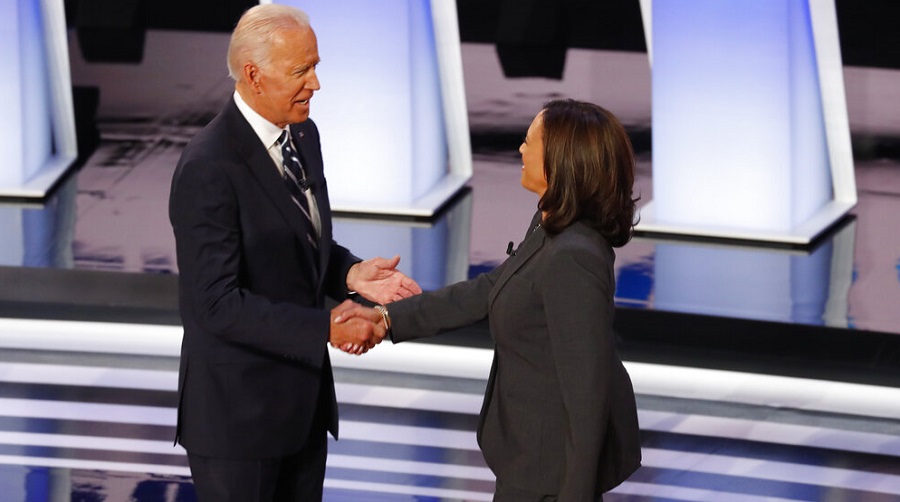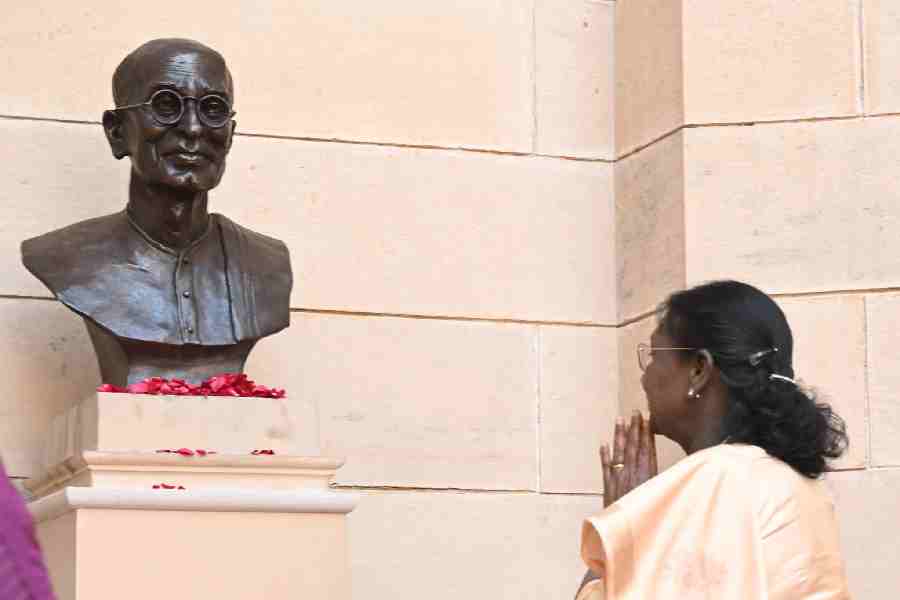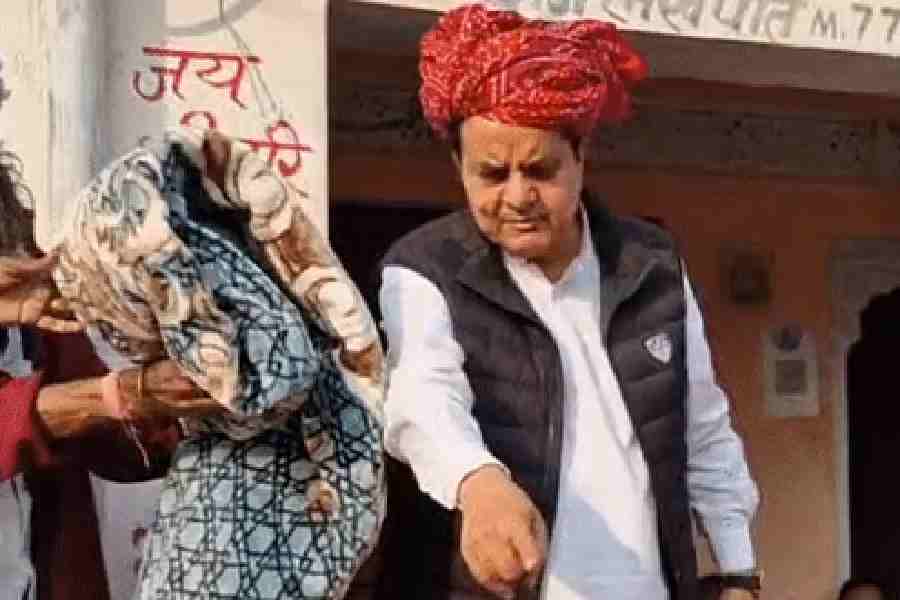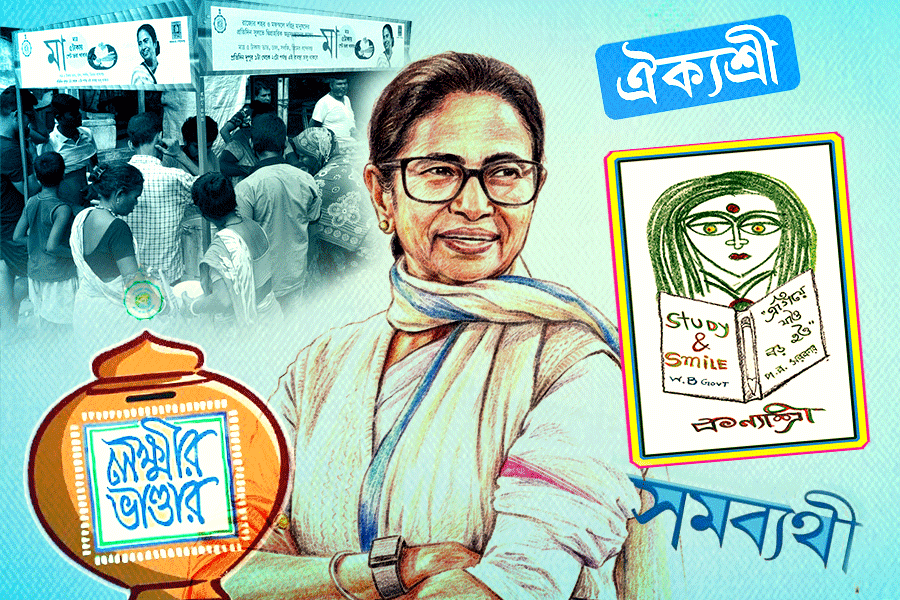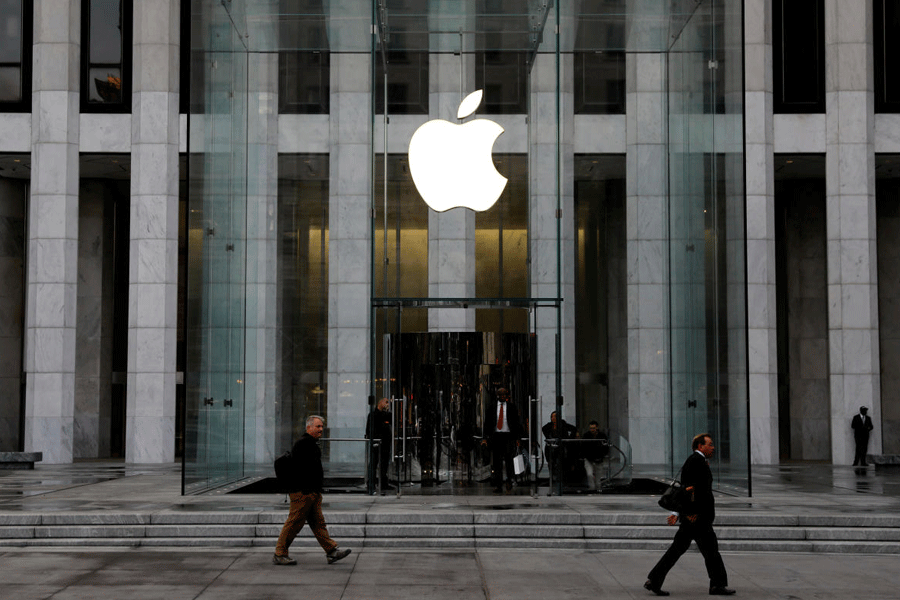The full import of presumptive Democratic presidential nominee Joe Biden’s choice of Kamala Harris is not that she is the first American of half Indian parentage to be on a major party’s vice-presidential ticket in the United States. It is that this California politician of partial Indian descent may be US President in the not-too-distant future.
Whether she will potentially be the 46th or the 47th President, we will know in less than 90 days. Biden is talking of leaving the White House even before he has occupied it. At the end of last year, the 77-year-old former Vice President indicated to close aides that will only serve one term if he defeats Donald Trump on November 3.
In order to assuage concerns that he will be the oldest US President in history if elected, Biden has already referred to himself as a “transition President,” a bridge to someone younger as his successor. His choice of 55-year-old Harris means that in all likelihood, this bridge has led to her primacy as presidential candidate four years from now.
With a debate raging among Democrats whether Biden should formally pledge that he will only serve one term in the White House, the stakes on the choice of a running mate has seldom been higher than now.
Although George Herbert Walker Bush was the only sitting Vice President since 1836 to go from that office straight into the White House, Biden’s age and his many shortcomings – such as frequently putting his foot in his mouth, his chronic inconsistencies, his obviously poor reflexes – will mean Harris, if Vice President, will play a role larger than most of her predecessors in modern history.
That will considerably help Harris in overcoming any significant challenges in the party primaries to her presidential bid whether it happens in 2024 or in 2028. If Trump is re-elected in three months, Harris will be the face of the opposition to him in the next four years: that will pit her as a frontrunner to be the 46th President. On the other hand, if Biden defeats Trump and becomes the 46th President, Harris, as Vice President – for four of eight years as the case may be – becomes the most likely choice to be the 47th President, if she defeats the Republican candidate in that election.
In the 2008 presidential election season, Howard Dean, then Chairperson of the Democratic National Committee (DNC), once spotted a group of Washington-based Indian journalists and joined them for an off-the-record, collective tête-à-tête. With a keen sense of what would tickle the Indian media, Dean expansively told us that one day, an Indian American would be US President.
“When would that be, Governor?” one of us asked. Dean was Vermont Governor before taking over as DNC Chairperson. Dean was stumped. Very good at mumbling and leaving listeners to interpret what he said, Dean said something to the effect that he hoped it will be soon. It was a trap Dean had set for himself. Having unexpectedly got the DNC Chairperson in our clutches, we were not letting go of him that easily.
“Why don’t you say this in public?” one of the journalists asked. Dean said he would and made a quick exit before he made any more such commitments, which he really did not want to make.
But Dean was true to his word. When we met again in Denver at the Democratic National Convention that August, at which Barack Obama made history as the first black man to accept US presidential nomination by any major party, Dean produced a signed document in which he predicted that one day an Indian American would be his President.
Sure enough, it was a document that was brought out by an Indian American front organisation of the Democratic Party, which was having several outreach events at the convention and not a mainstream party document. But we were thrilled. Indian journalists sent stories from Denver that the DNC Chairperson, the de jure party leader, had raised the possibility of a US President of Indian origin. Indian Americans had finally arrived in a political sense.
None of us from the media, who were in Denver in 2008, seriously believed that in a span of just 12 years, a day would come when an American with an Indian parent would be within heartbeat of the US presidency.
The real-life crisis in the selection of Harris for the Democratic ticket is for the “Howdy Modi” crowd, who are everywhere from North Dakota to Nevada and from Arizona to Arkansas. With his presence at Houston’s NRG stadium with Narendra Modi last September and more recently in Ahmedabad, Trump assumed that he had Indian Americans, a decently large voting bloc and a wealthy one, in his pocket.
Indian Americans, by instinct, cannot resist anyone who professes affinity for India. Look at how many fundraisers they line up from coast to coast in election after election for Congresswoman Tulsi Gabbard, who does not have even a drop of Indian blood although she is the first Hindu to be elected to the US House of Representatives.
Look at how they fawned on Bobby Jindal when he was elected to Congress and later as Governor of Louisiana even though Jindal missed no opportunity to kick Indians and Indian Americans where it hurt most at every opportunity that presented itself because he did not wish to identify himself with them lest he compromised his political prospects in a deeply reactionary southern state.
The dilemma for Indian Americans in the run up to November will be how they can turn their backs on Trump, who is clearly fascinated by India. Besides, Trump has so far been by and large good to New Delhi, within the limits of his electoral compulsions on issues such as H1-B visas or student entry into the US. But Indian Americans also consider Harris to be one of them and they are loathe to let her down because if they do, it may be a long time before another Indian American is within heartbeat of the US presidency.
Harris is unlikely to make their choice any easier. While Biden courts Muslims who are his staunch supporters in total opposition to Trump’s Islamophobia, Harris will be the other side of the coin, courting Hindus who are everywhere in the US and Sikhs who have their pockets of electoral and financial influence on the West Coast. Of course, the Indian American story is a side story to the Biden-Harris ticket in November.

